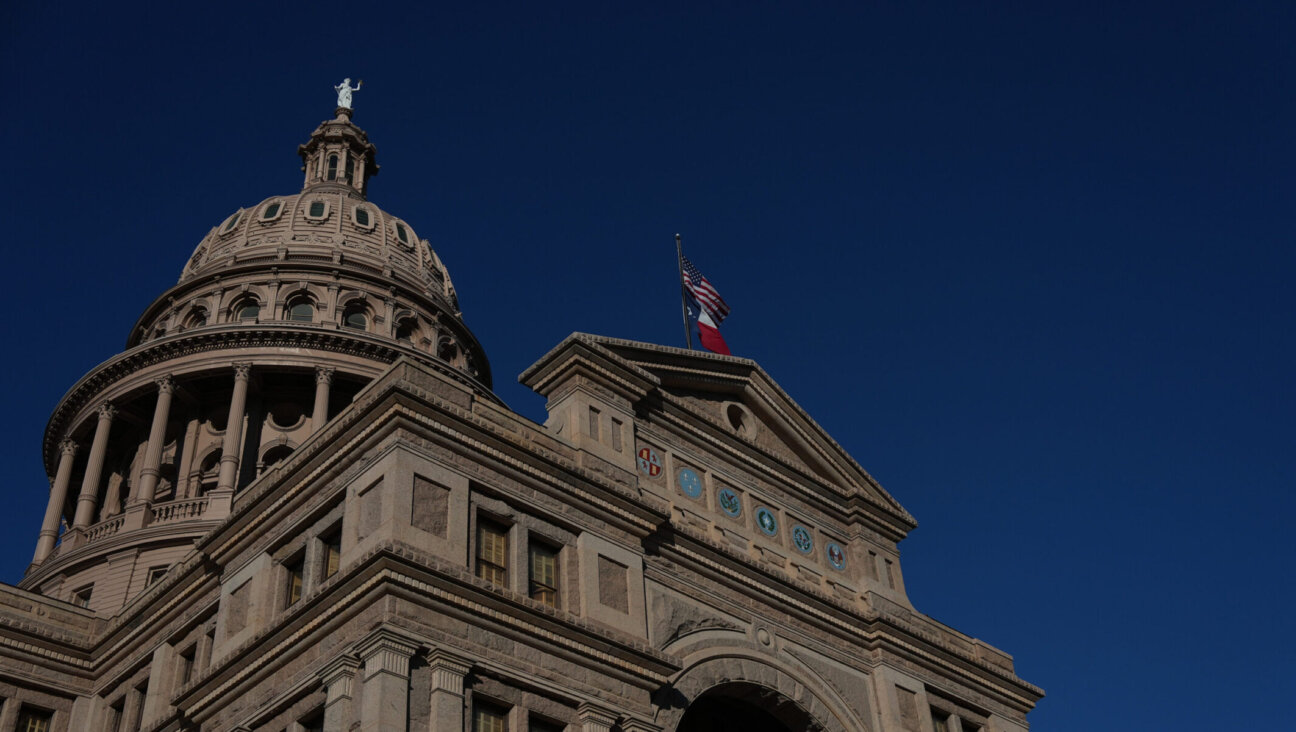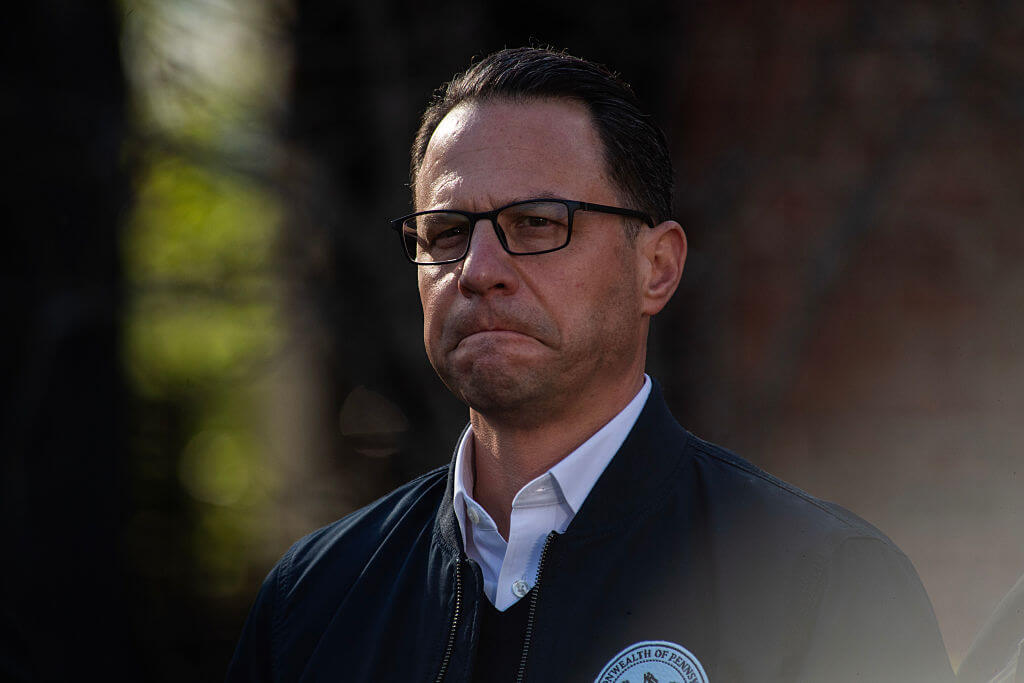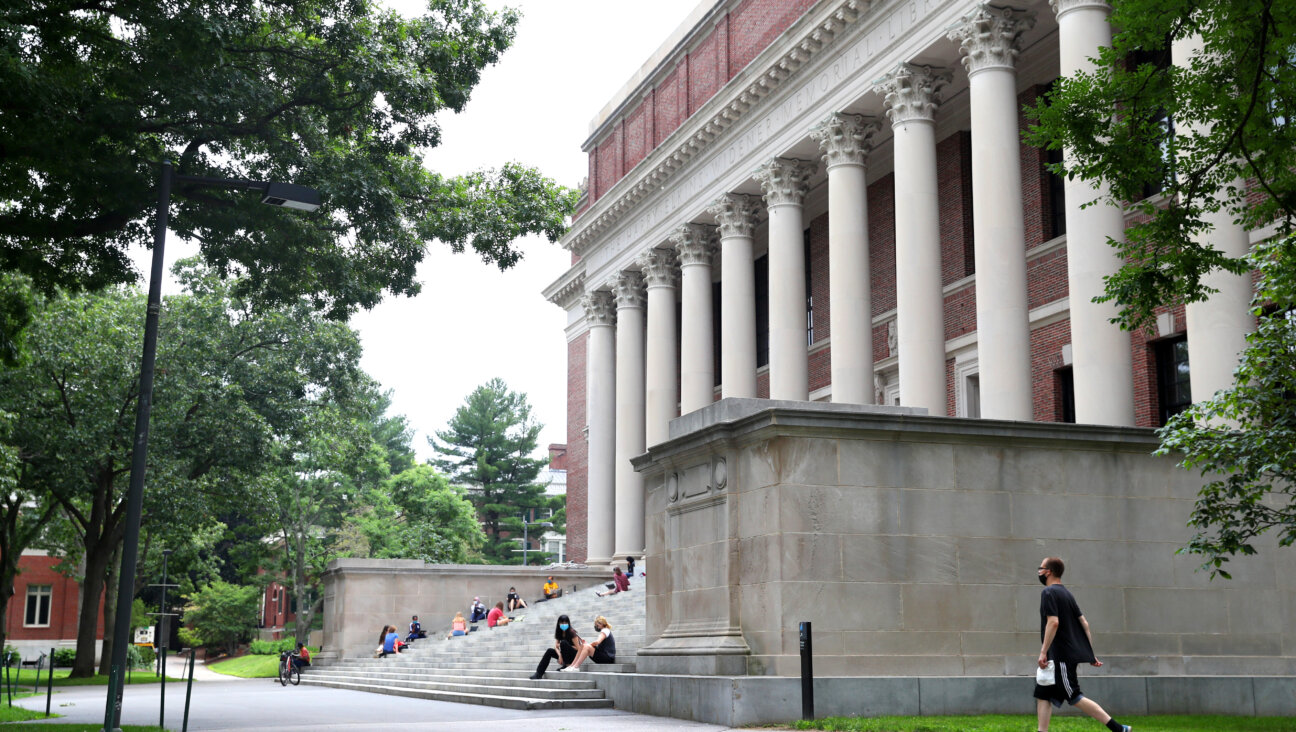Pro-Israel Groups Focus on Christians Under P.A. Rule
CHICAGO — With the Palestinian Authority retaking control of Bethlehem earlier this month, several pro-Israel organizations are hoping to focus greater attention on the plight of Christians living in the territories.
Several groups, including the Anti-Defamation League, American Jewish Congress and National Christian Leadership Conference for Israel, have been attempting to convince American church leaders and legislators that Christians are being mistreated in territories controlled by the Palestinian Authority. Many of these activists are hoping that the changeover in Bethlehem helps focus renewed attention on Palestinian rule in the birthplace of Jesus.
“Not everyone in Bethlehem is happy about the withdrawal,” said David Blewett, president of the National Christian Leadership Conference for Israel, a pro-Israel ecumenical network of Christian organizations and individuals.
Blewett said that the information campaign being carried out by pro-Israel groups was triggered largely by the tendency of liberal Protestant churches to criticize Israel and their refusal to inform congregants about the treatment of Christians in the Palestinian territories. As part of the campaign, the Israel Project, a nonprofit group that works to improve Israel’s image, screened a documentary film at the Capitol in Washington titled “Holy Land: Christians in Peril,” which argues that Christians are fleeing the Palestinian territories in part due to religious persecution carried out by their Muslim neighbors.
“Israel had administrative control over Bethlehem until 1995 when they ceded control to the Palestinian Authority as part of the Oslo Accords,” said Eugene Korn, the ADL’s director of interfaith affairs. “In 1995, Bethlehem was 62% Christian. Today that town is less than 20% Christian. It used to have a Christian majority municipal council, but when the Palestinian Authority took it over, Arafat replaced the municipal council with a predominantly Muslim municipal council. Today Christians have virtually no political power in Bethlehem.”
The problem extends throughout the Arab world, Korn argued. “Christians and Jews have never been considered equal citizens in Arab Muslim countries,” Korn said. “Four out of five Maronites have left Lebanon. Over 60% of the Assyrian Christians in Iraq have left, and they’re leaving the Palestinian territories in droves if they have the means to do so. [Christians] can live without discrimination in the West, but they can’t live without discrimination in the Middle East.”
Palestinian Christian leaders in America, meanwhile, are rejecting such attempts to criticize the P.A. and Arab countries. “That is Zionist propaganda,” said Nelson Hannah, a Jerusalem native and president of the Arab-Christian Association in Des Plaines, Illinois.
The criticisms were also rejected as “propaganda” by Salameh Zanayed, a Ramallah native and retired director of the Advisory Council on Arab Affairs for the Chicago Commission on Human Relations. Zanayed acknowledged that incidents of discrimination have taken place, but downplayed them as isolated. He characterized Muslim attitudes in the region toward Christians as “respectful.”
By most accounts, at the beginning of the 20th century, Christians accounted for close to 20% of the population living in the land between the Jordan River and the Mediterranean Sea. Today, the proportion is about 2%. Of the 50,000 Christians remaining in Palestinian territories, an estimated 500 to 1,000 leave each year. Some Palestinians pointed out that the declining percentage has coincided with the rise of the Zionist movement. Korn and others counter that the number of Christians living within Israel’s pre-1967 borders has increased from 34,000 in 1948 to 160,000 today.
The exodus of Christians from Bethlehem should be blamed primarily on Israeli policies and a faltering economy, several Palestinian Christian leaders in America said. “That region was so peaceful until the turn of the last century, until the first Zionist Congress in 1897,” Hannah said.
Blewett, the Christian leadership conference’s president, said that such comments needed to be taken with a “grain of salt,” because Christians in the territories are not free to speak about the oppression under which they live. According to this argument, many Christian leaders in this country are either unaware of the true situation or are afraid that speaking out will only make matters worse for their co-religionists in the territories.
Bucking this trend, Reverend Bassam Abdallah, a Palestinian and Lutheran pastor in Hammond, Ind., argued that Christians in the territories face a difficult situation. “There is something of a cold, silent discrimination that takes place in the territories that is part of the reason why Christians are leaving,” Abdallah said. “This silent discrimination did not exist in years past. This is something new. There is not an individual who wants to leave his culture, family and surroundings just for the sake of leaving.”
Speaking on condition of anonymity, several Palestinian Christians were willing to cast some blame on Palestinian Muslims as well as the Israelis.
“The Christians are disappearing from all Palestine and Israel,” said Lily, a Jaffa-born Christian immigrant to the United States, who spoke on the condition that her last name and church not be identified. “There is no security. They feel threatened by the Jews and by the Muslims. They have no jobs and no freedom, and the only freedom they have is to run away from there.”
Another Christian, born in the Old City of Jerusalem in the 1930s, complained that the worldwide Christian community had abandoned its brethren in the territories. “During the 1940s, the pope sent a special envoy to tell us that Christianity will be protected,” said the man, agreeing only to be identified as Abe. “They promised them that all the Holy Land will be under the United Nations flag. But nothing happened.”
The Forward is free to read, but it isn’t free to produce

I hope you appreciated this article. Before you go, I’d like to ask you to please support the Forward.
Now more than ever, American Jews need independent news they can trust, with reporting driven by truth, not ideology. We serve you, not any ideological agenda.
At a time when other newsrooms are closing or cutting back, the Forward has removed its paywall and invested additional resources to report on the ground from Israel and around the U.S. on the impact of the war, rising antisemitism and polarized discourse.
This is a great time to support independent Jewish journalism you rely on. Make a Passover gift today!
— Rachel Fishman Feddersen, Publisher and CEO
Most Popular
- 1

News Student protesters being deported are not ‘martyrs and heroes,’ says former antisemitism envoy
- 2

Opinion My Jewish moms group ousted me because I work for J Street. Is this what communal life has come to?
- 3

News Who is Alan Garber, the Jewish Harvard president who stood up to Trump over antisemitism?
- 4

Fast Forward Suspected arsonist intended to beat Gov. Josh Shapiro with a sledgehammer, investigators say
In Case You Missed It
-

Fast Forward Itamar Ben-Gvir is coming to America, with stops at Yale and in New York City already set
-

Fast Forward Texas Jews split as lawmakers sign off on $1B private school voucher program
-

Books What is ‘Zionism without Zion?’ New history asks, but can’t answer
-

Fast Forward Shapiro recites Priestly Blessing given to him by fire chaplain after Passover arson
-
Shop the Forward Store
100% of profits support our journalism
Republish This Story
Please read before republishing
We’re happy to make this story available to republish for free, unless it originated with JTA, Haaretz or another publication (as indicated on the article) and as long as you follow our guidelines.
You must comply with the following:
- Credit the Forward
- Retain our pixel
- Preserve our canonical link in Google search
- Add a noindex tag in Google search
See our full guidelines for more information, and this guide for detail about canonical URLs.
To republish, copy the HTML by clicking on the yellow button to the right; it includes our tracking pixel, all paragraph styles and hyperlinks, the author byline and credit to the Forward. It does not include images; to avoid copyright violations, you must add them manually, following our guidelines. Please email us at [email protected], subject line “republish,” with any questions or to let us know what stories you’re picking up.











